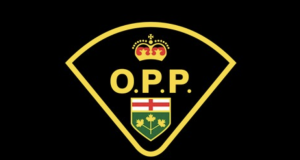The East Algoma Ontario Provincial Police (OPP) would like to remind the public that there are many schemes being used to defraud the public and businesses.
If you receive any unsolicited communication by any means asking for money to be given or that you won money, be cautious and suspicious. Never give out any personal, credit or banking information to anyone over the phone, by letter, email, fax or any other means of communication. Never provide anyone your Social Insurance Number (SIN) over the phone. Often, the victims are presented with a situation that is either very serious and/or needs immediate attention and they feel pressured to provide the information requested on the spot. This is a tactic frequently used in the scams.
Here are just a few current examples:
- Canada Border Services Agency (CBSA) Scam – The CBSA is warning the public about ongoing email, text messages or telephone scams in which people posing as officials from the CBSA are asking for personal information, including SIN. The methods used by the scammers to communicate with the public, and the rational provided to justify being in contact with the victim, are varied, ever changing, but always designed to lure the public into providing personal information. In some cases, these scams use false CBSA information. Telephone calls may display numbers and employee names that appear to be from the CBSA. Emails may contain CBSA logos, email addresses or employee names and titles to mislead the readers. It is important to note that the CBSA never initiates a request for SIN and credit card number by telephone or email. If an individual receives a telephone call or an email asking for this information, or requesting payments from the CBSA, it is a scam.
- Canada Revenue Agency (CRA) Scam – criminals extort money from their victims through a fraudulent communication that claims to be CRA. The communication requests personal information such as a SIN number, credit card number, bank account number or passport number. They make false claims about the victims owing money and they are very aggressive.
- Covid Scam – The Canadian Anti-Fraud Centre (CAFC) has received reports of a text message scam tied to COVID-19 vaccines. The text message claims to be from the Ministry of Health and will say that your third COVID-19 vaccine has been scheduled. The fraudulent text message then asks you to click on a malicious link. After clicking on the link, you are asked to download software that contains malware. Malware can infect your device and can put you at risk for identity fraud by exposing your personal information, banking details and online account credentials. Do not click on the link!
Any legitimate agency will NEVER request a payment by Interac e-transfer, online currency such as bitcoin, pre-paid credit cards or pre-paid gift cards such as Google Play, iTunes, Vanilla, etc. Scammers will ask to purchase large denomination gift cards as form of payment.
“Awareness is key when it comes to recognizing frauds and scams. There are so many types out there but the better educated the public are, the less chance they have to fall victim to these ruthless scammers. Don’t keep it a secret – talk to a friend, family member, neighbour, or police before making any decisions to send money to people you don’t know”, says OPP Community Safety Officer Phil Young.
If you believe that someone is posing as a fraudster on the phone, hang up. Also, you can file a complaint through the Canadian Anti-Fraud Centre at 1-888-495-8501. If you are a victim of a fraud or scam, contact your local police agency.
Remember, you can Stop Phone Fraud – Just Hang Up!
- East Algoma OPP – Charges laid in collision - February 21, 2026
- Nipigon OPP – Arrest made after stopping driver for speeding - February 16, 2026
- East Algoma OPP – Arrest made after Family Dispute - February 16, 2026
 Wawa-news.com Local and Regional News
Wawa-news.com Local and Regional News

